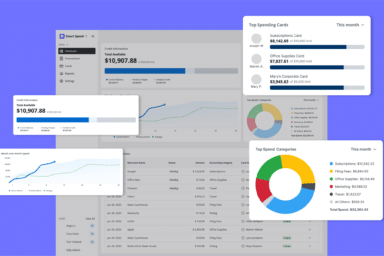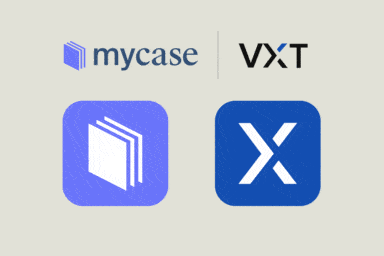Experts Explain How to Effectively Manage Law Firm Finances During Times of Crisis
May 6, 2020
| 5 min readIf one of your top goals is to keep your firm financially stable during COVID-19, rest assured, you’re not alone. This pandemic has disrupted businesses in ways many of us could not have imagined at the beginning of 2020. Law firms have not been immune from the disruption, and many were required to close their doors and transition to virtual law offices with remote workforces overnight.
Because we wanted to gain a better understanding of the unique impact of COVID-19 on law firms, MyCase recently launched a nationwide survey of lawyers. Our end goal was to learn more about the financial, operational, and individual changes law firms are making to maintain business continuity during this time. Over 800 lawyers responded to the survey and their answers were both interesting and enlightening.
Sharon Nelson, attorney, the President of Sensei Enterprises, Inc. (a digital forensics, managed IT service provider and managed cybersecurity firm), and the co-author of the newly updated ABA book “The 2020 Solo and Small Firm Legal Technology Guide,” recently wrote about the survey on her blog. She noted that firms were focused on financial viability and the long-term impact of COVID-19: “A third of firms say they have cut expenses and 16% say they have instituted layoffs or furloughs…69% think the pandemic will have a lasting impact on how they operate and 76% agree it will have a lasting impact on the way their firm uses technology.”
If anyone knows about the tools designed to help law firms report on & manage finances, it’s Nelson. In their book, Nelson and her co-authors devote an entire chapter to software tools designed to help law firms maintain financial stability: namely, legal billing software.
In that chapter they discuss how this type of software streamlines attorney time-tracking, legal billing, and payment processing by providing lawyers with a single centralized location to manage store all of that information.
The latest of edition of this book was published prior to the pandemic, but even so, the authors highlight how cloud-based legal software programs with legal billing tools built into them are increasingly being used by lawyers: “Attorneys have some special requirements for handling the billing financials such as trust accounts, retainers, etc. We are seeing more and more attorneys using the billing function contained within their cloud-based practice management platform”
For more insight on why lawyers often rely on the billing features built into law practice management software, you need look no further than the chapter of their book that focuses on this type of software. In this chapter, the authors elaborate on the benefits provided by this software and how valuable it can be when running a law firm:
“Even in a world full of smartphones and wireless devices, it amazes us that most solo and small firm lawyers still don’t use a computerized case management software application. We’ve been making that statement for more than ten years now. Case management is a must-have for today’s modern law office. You may have heard other terms that describe the same type of software…Arguably, the term “practice management” is more inclusive and encompasses what is termed “front office” (case/client information) and “back office” (accounting and billing).”
As co-author Sharon Nelson explains in her recent blog post discussed above, cloud-based legal software is even more essential while sheltering in place due to the COVID-19 pandemic:
“Firms using cloud-based systems felt more prepared to work from home than those not using cloud systems. Asked if they have what they need to work from home, 79% of those using cloud systems said yes, compared to 59% of those not using cloud systems. Those stats are in line with what we know as well. Several firms which had deliberately chosen to keep their data on-premise now regret that decision and asked to be moved to the cloud. Funny what a pandemic will do.”
So if your law firm isn’t already using cloud-based legal billing tools to track and manage your law firm’s finances, then there’s truly no better time than the present. Cloud-based law practice management software provides a centralized location for all of your law firm’s financial data that can be easily accessed from any location by law firm employees using any internet-enabled device. There’s no better way to stay on top of your firm’s finances while working remotely than using cloud-based legal practice management software.
To learn more about how the legal billing features built into law practice management software can help your firm maintain financial stability and get paid in the midst of challenging times, make sure to read this post: Running a Remote Law Firm: Getting Paid During COVID-19.
And finally, I’ll leave you with this recommendation from one of the attorneys who responded to our survey:
“Be as flexible as you can while meeting the needs of clients. It may cost a little bit of money now to implement new tools, but if it helps keep you in business, it will be worth it.”
–Heather Stuart, Godfrey Law & Associates, PLLC


